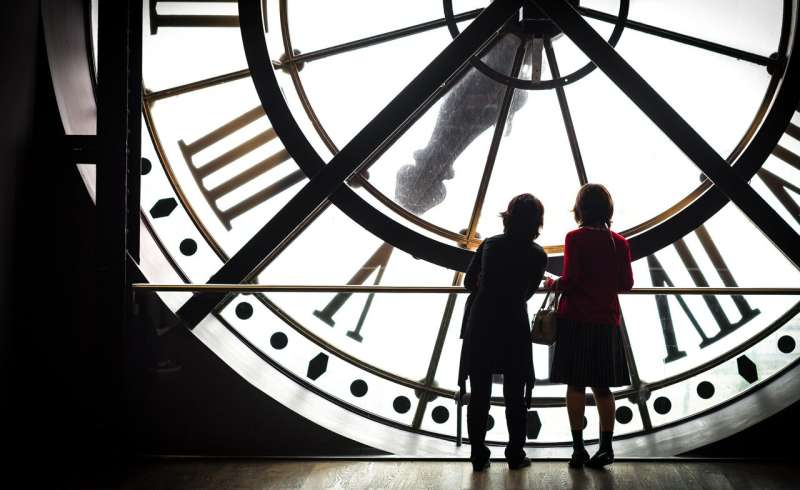This article has been reviewed according to Science X's editorial process and policies. Editors have highlighted the following attributes while ensuring the content's credibility:
fact-checked
peer-reviewed publication
trusted source
proofread
Lost in lockdown: Study reveals feeling isolated from others can warp our perception of time

Feelings of loneliness and social isolation during the pandemic left many people confused about the order of events and struggling to remember what day of the week it was, a new study reveals.
The research, from the University of York, looked at the psychological impact of the pandemic, which spread to the UK in March 2020, through the lens of disorientation. The paper is published in the British Journal of Psychology.
The researchers asked more than 3,300 French participants nearly 60 questions analyzing the psychological effects of lockdowns. The survey took place during an acute phase of restrictions when there was a lockdown followed by a strict curfew.
The findings reveal both social and temporal disorientation—a sensation of disarray in social interactions and sense of time—was common.
Many participants in the study described feeling out of place and unsure how to behave in social situations. They also reported experiencing a blurring of time and feeling adrift as they struggled to keep track of events prior to the pandemic as well as what day of the week it was.
The difficulty also extended onwards in time. Participants found it harder to imagine what lay ahead, and they felt more anxious and less in control of their future.
The researchers found that people who felt disconnected socially were highly likely to also experience temporal disorientation. Their analysis of the study data suggested a causal relationship between the two, with social isolation leading to disruptions in the experience of time.
Dr. Pablo Fernandez Velasco, a British Academy postdoctoral fellow at the University of York, and the lead author of the study, said, "We found that social disorientation was a strong predictor of temporal disorientation and it looks likely that there was a causal relationship between the two. Feeling lonely and isolated from others seems to warp our perception of time, with a sense of feeling lost and confused spanning the past, present and future.
"Many people in our society, across all groups and demographics, suffer from loneliness. The findings of our study reinforce the importance for public authorities to address the compounding effect of feeling isolated both during crises and in day to day life."
The researchers found that young people under 25 were the age group most affected by feelings of disorientation.
The researchers suggest their findings point to a new phenomenon which they call "temporal rupture", which is like a fault line in our minds separating the "before" and "after" of the pandemic.
Dr. Fernandez Velasco added, "Our study shows that the sense of a rift separating time before and time after the pandemic was a common experience during the COVID-19 crisis.
"The larger the experienced rift between pre-pandemic and pandemic times, the more disorientated people felt. The personal accounts collected in our study help advance the understanding of the potential impacts of feelings of loneliness and isolation via the extraordinary experiences of the pandemic."
More information: Pablo Fernandez Velasco et al, Social and temporal disorientation during the Covid‐19 pandemic: An analysis of 3306 responses to a quantitative questionnaire, British Journal of Psychology (2024). DOI: 10.1111/bjop.12704





















